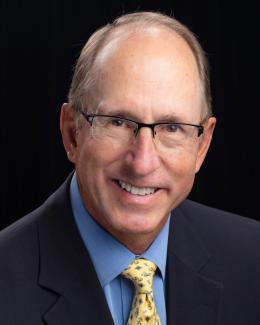
Bio
Mr. Bevard came to ORNL in 1992 after spending over 11 years in the civilian nuclear industry as a consultant in the nuclear engineering and information systems areas and 5 years in the U.S. Navy as a Nuclear Qualified Submarine Officer. He has extensive experience in the management of nuclear fuel qualification and testing programs, reactor modification and licensing programs, and nuclear power-related research and development (R&D) projects. Mr. Bevard is the ORNL manager for post irradiation examination (PIE) testing in support of DOE’s High Burnup Spent Fuel Data Project. In this capacity, Mr. Bevard has responsibility for development and implementation of the PIE test program for irradiated light water reactor (LWR) fuel at ORNL. This work includes testing on 25 high burnup LWR fuel rods received at ORNL in 2016. From 2008 - 2016 Mr. Bevard was the ORNL manager for nuclear fuels testing in support of the U.S. weapons-grade plutonium (MOX) disposition program. In this capacity, Mr. Bevard was responsible for the PIE test program on irradiated MOX fuel at ORNL.Since 2009 Mr. Bevard has led the ORNL team investigating the effects of transportation-induced vibration on high burnup spent nuclear fuel. This program was initiated by the Nuclear Regulatory Commission (NRC) and has been expanded to be part of DOE’s High Burnup Spent Fuel Data Project. The work includes equipment development, finite element analyses, out-of-hot-cell testing, and hot cell testing of high burnup spent nuclear fuel. Initial experiments focused on pressurized water reactor (PWR) fuels; current experiments are examining the effects of hydride reorientation in PWR fuels experiencing vibration-induced loads and the effects of vibration on boiling water reactor (BWR) fuel.Under the DOE Integrated Waste Management Project, Mr. Bevard supports the development of the integrated system architecture needed to transport, store, and eventually dispose of the nation’s spent nuclear fuel. The work includes development of system operational concepts, functions and requirements, and facility and subsystem design feasibility analyses necessary to lay the groundwork for an effective spent fuel management and disposition system. Mr. Bevard led the ORNL program to support the NRC efforts to license new reactors including small, modular reactors (SMRs). This work included the update of the Standard Review Plan (NUREG 0800), development of Combined Operating License (COL) Safety Evaluation Report templates for the ABWR, AP-1000, ESBWR and EPR, and support of NRC’s review of the nuclear industry’s COL (10 CFR Part 52) and reactor design certification (DC) submittals. Mr. Bevard served as the overall coordinator for the Office of Science National Laboratory Consortium (4LC) consisting of Argonne National Laboratory (ANL), Brookhaven National Laboratory (BNL), Oak Ridge National Laboratory (ORNL), and Pacific Northwest National Laboratory (PNNL) in support of the NRC’s new reactor licensing program. Mr. Bevard supported the DOE space reactor R&D program (2004–2005), leading ORNL’s work on the NASA Jupiter Icy Moon Orbiter (Project Prometheus) Program for the DOE Office of Nuclear Energy, and subsequently the Office of Naval Reactors. This program focused on developing technologies necessary to design, launch, and operate a 100 MW liquid metal or gas cooled reactor in space. Mr. Bevard served as the U.S. Co-Chairman for the Thermal Reactor Working Group (1995–2004), which was part of the Joint U.S./Russian Plutonium Disposition Project. The focus of this international project was to take Russian weapons-grade plutonium withdrawn from nuclear military programs and utilize it as mixed-oxide (uranium/plutonium - MOX) fuel in Russian VVER-1000 pressurized light-water reactors. Mr. Bevard also served as the U.S. representative to the International Atomic Energy Agency (IAEA) for the 1997 Symposium on “Nuclear Fuel Cycle and Reactor Strategy: “Adjusting to New Realities” (1996–1997). He served as the U.S. Delegate to the October 1996, P-8 Experts Meeting on Plutonium Disposition in Paris, France. This meeting was a result of agreements made by Presidents Clinton and Yeltsin to disposition surplus weapons-grade plutonium. Mr. Bevard received a B.S. degree in Operations Analysis from the United States Naval Academy and an M.B.A. from the University of Connecticut. He completed all course work in the Ph.D. program in Engineering Management with the University of Alabama (Huntsville).

